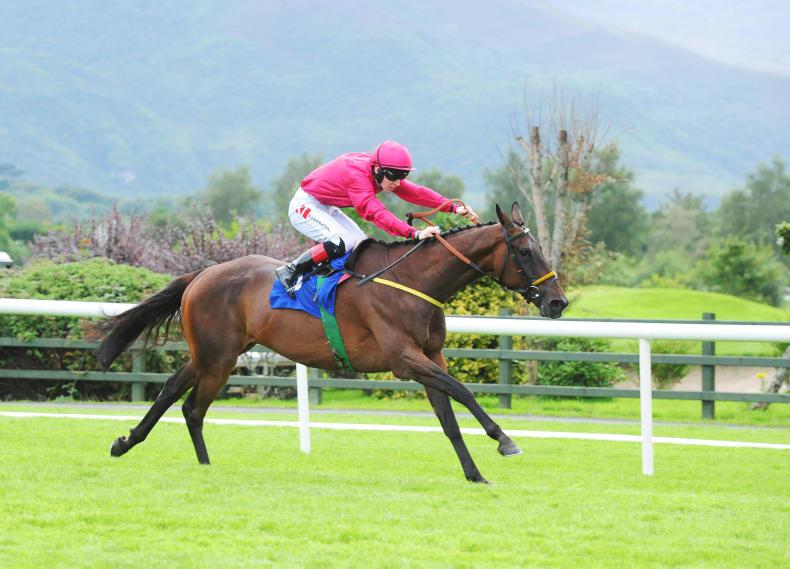THE whip rule debate just won’t go away, and whether a lengthy ban is a sufficient determent to exceeding the whip strokes limit is sufficient, continues to create debate.
Of course pleasing everybody is impossible and should the rules in Britain be changed and disqualification of the horse become the norm, you can be sure there would be just as much outcry from different quarters.
Sometimes you think there are many who just too happy to keep it going for the sake of headlines.
The fine and ban for Davy Condon’s ride on Bayan last Saturday, one of the biggest in the National Hunt code to date, brought it to the surface again and followed on from Sir Mark Prescott’s newspaper piece last week on how he feels the rules are not working.
There is no doubt that the current rules can be criticised in how they are slanted hugely in favour of the top jockeys who will obey them mid-week to avoid a ban but risk the ban or fine to win a Group 1. Jockeys and apprentices who are riding at a lesser grade all week have no option but to take the punishment.
Many lose out on valuable mounts, both financially and in the furthering their career in a high profile handicap as was the case with Ross Coakley missing the ride on Ebor winner Mutual Regard as a result of a pretty innocuous offence, by Irish standards, picked up at Lingfield. There was no option but to take the punishment.
Personally I believe the Group 1 exemption should be abolished. If a jockey breaks the rules he is banned the appropriate time, no matter what races are coming up.
That still won’t stop top riders obeying the rules mid-week and breaking them in big races.
However, the current debate is centred on the use of the phrase “win at all costs” which is not an accurate description of the situation. It implies some sort of skulduggery, of eliminating a rival through foul means. That’s not what is happening by going four strokes over the allowed whip limit.
Davy Condon’s rule break was one of the most obvious and in the circumstances, he probably got carried away. But his ban and fine are severe and he will probably be more conscious should the situation arise again. Who knows, James Doyle may be more aware of going over the limit after the Noble Mission as it cost him his Breeders Cup rides.
It’s more worrying that riders are making no attempt to correct a hanging horse and interference is more frequent.
If you disqualify for committing a whip offence, it should also be the same with interference, so disqualifications will become more common.
One of the arguments offered is that no sport allows someone to break the rules and still win but no sport disqualifies for trying too hard to win either, and no other racing nation does.
Offside goals disallowed, sendings off, penalties, are punishments for rule breaks but do not necessarily result in a changed result.
Disqualifying the rule breaker is not as simple a solution as it sounds. It will not be black and white.
Firstly, by banning and fining the jockey is the only way of punishing only the person who committed the crime. Why should an owner be punished, or the trainer or lad who loses his percentage. There can never be proof that a trainer gave instructions to a jockey to use the whip as he pleased. Perhaps increasing the bans would be more of a deterent.
Secondly, can we not defend the use of a padded whip in the last two furlongs of a race being used on horses who only have to feel it about eight times a year? Few really believe it to be a welfare issue.
Yes, Many Clouds had a hard race in the Hennessy, but he won’t run again for at least eight weeks and probably only four times a year. Marathon runners have go to the limit to win.
We see from Mad Moose that you can’t make a horse do something that he doesn’t want to.
It can never be black and white - winners could be disqualified for two cracks over the limit as well as five. And there will still be outcry. Would anything over seven result in automatic disqualification? We had that way back when Ruby Walsh was banned for a few strokes over at Aintree at the height of the debate four years ago. No one was happy then.
Toocoolforschool would have lost the Mill Reef this year when he was clearly the winner and Silvestre De Souza was at fault for unnecessary over use.
Thirdly, it throws all sorts of complications into the area of betting but not only that, it eliminates all the feel good, celebratory elements of the winner. This is hugely important for racing to keep in the public eye.
It’s this mythical ‘public perception’ that is supposedly driving the campaign for change. But how far does it exist beyond the range of many British journalists? How much do the public care? Certainly, few in Ireland see much wrong with the current rules, I would argue.
Fewer racing occasions make the front pages. Cheltenham Gold Cup day is one. As both Davy Russell and David Casey got bans after the Gold Cup should they have been disqualified? Some would have it so. Similarly at Ascot last week, the third horse would have been the winner.
So where’s the victory shot? The winners’ photo and interview?
Every newspaper carried a photo of Davy Russell celebrating the victory in the Gold Cup last year. If both the first two were disqualified, think of all that wasted interviews, no photo of the hour of triumph if The Giant Bolster became the winner.
Coverage in the national newspapers is vital for racing. That must be balanced against this “public perception.” It’s vital that racing doesn’t lose front page space.
Few racing people would see too much wrong with the rides by James Doyle and Leighton Aspel, they were a long way from what could be called abuse, especially those of us who can remember incidents in the 1980s.
It was said (by John McCririck among others) that Britain were taking a stand and the world would follow on whip rules but that isn’t happening. Should the BHA move to begin disqualification it will be allowing British racing to shoot itself in the foot again.


 This is a subscriber-only article
This is a subscriber-only article
 It looks like you're browsing in private mode
It looks like you're browsing in private mode










SHARING OPTIONS: